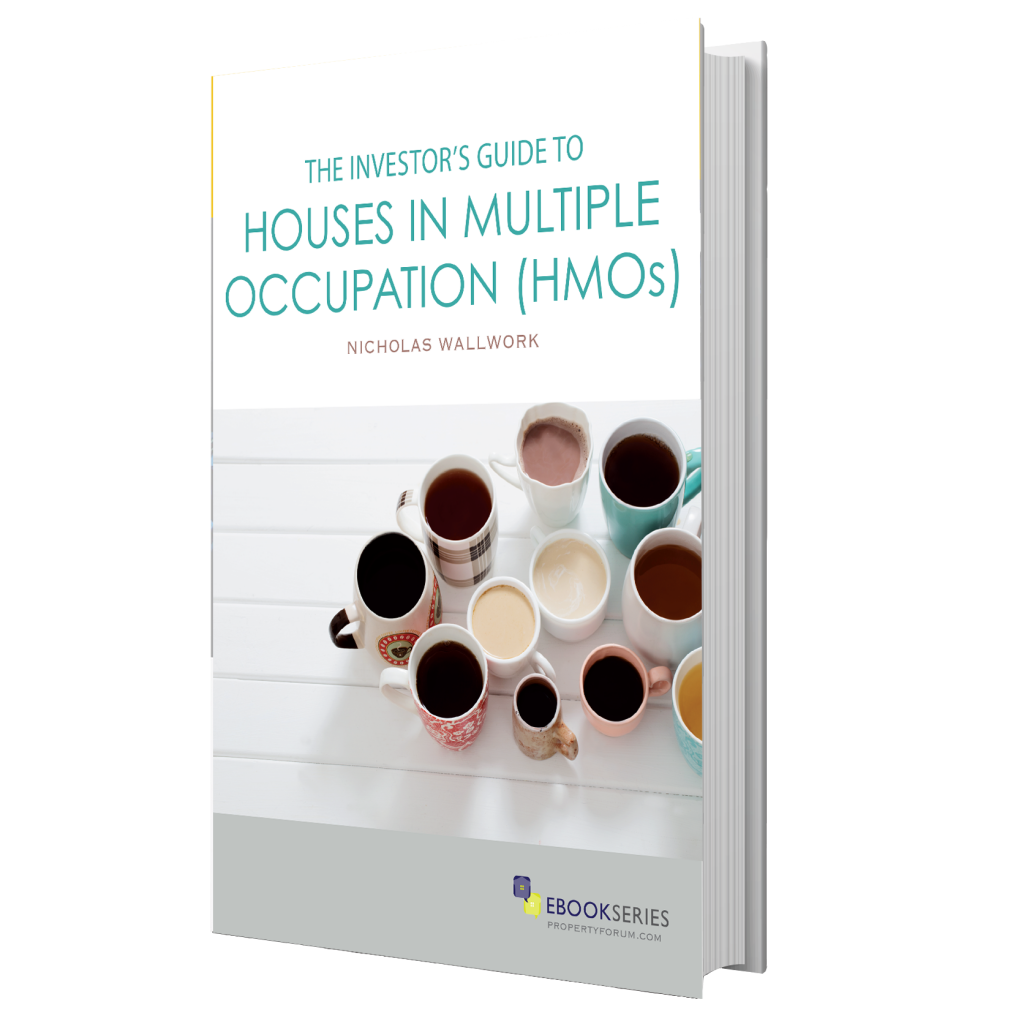Let's talk HMOs: Maximising layouts, increasing profits, and scaling up your portfolio.
Chances are, if you are researching more about HMOs (or about how to scale up an existing HMO portfolio) then there’s a reason you aren’t out there investing and are here reading this. I’m guessing there is a key problem, issue or concern holding you back? I hope the resources I’ve provided on this page will help you move forwards.
I’ve faced my own share of unforeseen problems developing HMOs over the last 20 years but each challenge has allowed me to develop a winning formula that ensures success with each new HMO development I do. I’ve shared some of my expertise in my free HMO ebook, and you’ll also find a chapter on HMOs in my latest For Dummies book.
The level of profitability in any HMO is determined by a number of key factors that you MUST get right at the outset, including;
- Identifying the right location with a high demand from the right type of tenant
- Planning the best layout that really maximises the use of space in a property
- Getting the right finance in place to allow you to grow your portfolio
- Negotiating the right purchase price for the property
- Avoiding getting caught out in planning or licensing regulation
Let’s get started with location, location, location…

Choosing the right location for your HMO is essential.
Get things in the right order. You can’t choose a location if you don’t know who your target tenants will be. For example, if you want to attract young professionals you need to choose a busy town or city with a high demand from that rental market.
Whether a property is classed as an HMO depends on a number of factors. In England, the government planning department defines an HMO as a property with
- At least three tenants living there
- Tenants forming more than one household (a household being a single person or members of the same family living together, including married and co-habiting couples)
- Shared kitchen and bathroom facilities
Landlords and developers also need to understand when a property becomes classed as a large HMO, as this incurs different licensing requirements. A large HMO is defined as being;
- Rented to more than six people (not of the same household)
- With shared kitchen and bathroom facilities.
The rules surrounding HMOs are constantly changing local UK authorities are demanding licensing for both large and small HMOs. Licensing is a very important part of running HMOs that needs to be understood and adhered to.
Planning the best layout for your HMO
Get things in the right order. You can’t choose a location if you don’t know who your target tenants will be. For example, if you want to attract young professionals you need to choose a busy town or city with a high demand from that rental market.
Whether a property is classed as an HMO depends on a number of factors. In England, the government planning department defines an HMO as a property with
- At least three tenants living there
- Tenants forming more than one household (a household being a single person or members of the same family living together, including married and co-habiting couples)
- Shared kitchen and bathroom facilities
Landlords and developers also need to understand when a property becomes classed as a large HMO, as this incurs different licensing requirements. A large HMO is defined as being;
- Rented to more than six people (not of the same household)
- With shared kitchen and bathroom facilities.
The rules surrounding HMOs are constantly changing local UK authorities are demanding licensing for both large and small HMOs. Licensing is a very important part of running HMOs that needs to be understood and adhered to.
How can I help you with your HMO strategy?

Four Pillars of Property Investing
The key to successful property investing is to treat your property investment(s) like a business. By following the four pillars of property investing, you’ll develop

Download my FREE ebook on HMOs!

Four Pillars of Property Investing
The key to successful property investing is to treat your property investment(s) like a business. By following the four pillars of property investing, you’ll develop

Top Tips for Creating a Successful Joint Venture in a Property Development
As I approach the launch of my new Joint Venture opportunity, I thought it apt to look in more detail at how you should construct
I can help you with any of the following aspects of sourcing, managing and running a profitable HMO (of any size):
Financing HMOs
Breaking down the HMO Financial Model
Sourcing HMO Properties
Converting your existing home into an HMO
Buying a property to turn into an HMO
Deciding who you want to rent to
Finding the best location for your HMO
Staying on the right side of the law
Complying with HMO regulations
Sorting out planning requirements
Dealine with Mandatory HMO Licensing
Key health and safety considerations for HMOs
Managing your HMO
Tenancy agreement
Finding and vetting tenants
Managing tenants and the property
Scaling up your HMO portfolio
Mega HMOs
Let’s get back to basics: What exaclty is a HMO?
In very simple terms, an HMO (House in Multiple Occupation) is a residential property where rooms are rented out to multiple separate tenants (often young professionals or students). As an example, a three-bedroomed house with two reception rooms could potentially be converted into a five-bedroom HMO, rented to five separate tenants.
Whether a property is classed as an HMO depends on a number of factors. In England, the government planning department defines an HMO as a property with
- At least three tenants living there
- Tenants forming more than one household (a household being a single person or members of the same family living together, including married and co-habiting couples)
- Shared kitchen and bathroom facilities
Landlords and developers also need to understand when a property becomes classed as a large HMO, as this incurs different licensing requirements. A large HMO is defined as being;
- Rented to more than six people (not of the same household)
- With shared kitchen and bathroom facilities.
The rules surrounding HMOs are constantly changing local UK authorities are demanding licensing for both large and small HMOs. Licensing is a very important part of running HMOs that needs to be understood and adhered to.